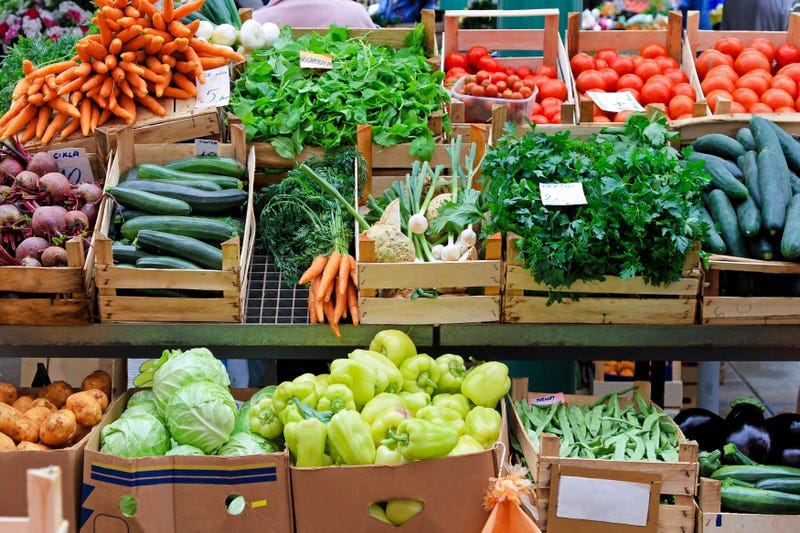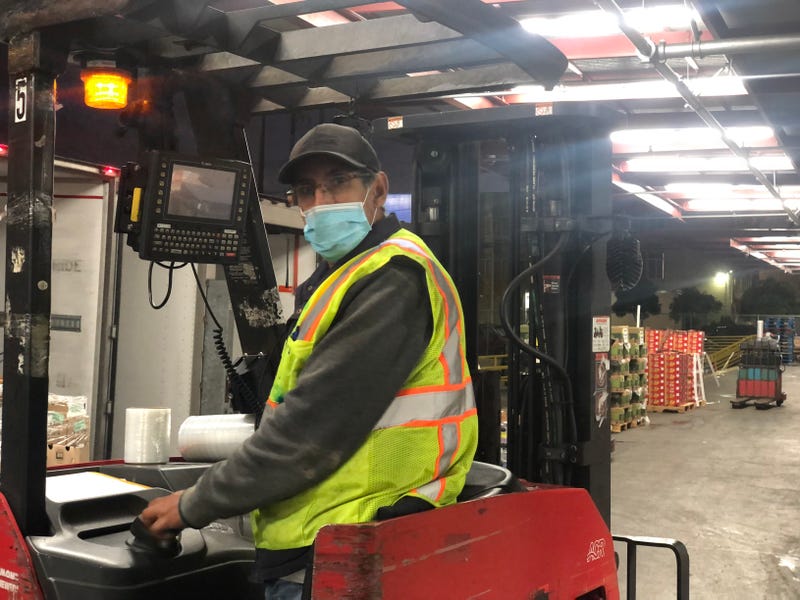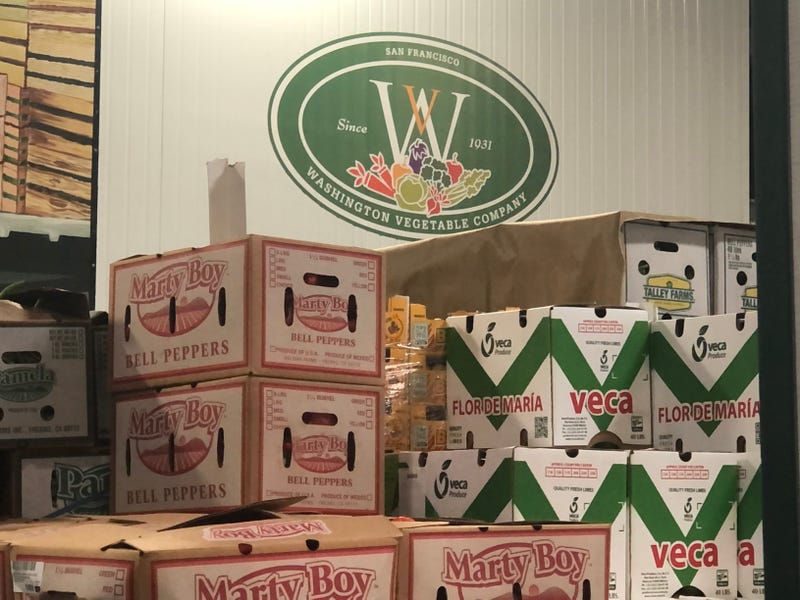
As we near the winter holidays, prices for produce are rising.
Listen to the latest episode of "Bay Current" below.

Everything from your everyday apples to your Thanksgiving butternut squash are costing more.
The nationwide supply chain backlog is impacting every element of the supply and demand industry – including produce.
There is around the clock demand for produce at The SF Market in the city's Bayview District, with the busiest times between 3 a.m. and 5 a.m. Jack Pizza, President of Washington Vegetable Company, said logistics and transportation have been challenging.
"The trucking is a huge issue right now. It's very expensive so that is basically just getting passed along to the consumer," he told KCBS Radio and as discussed on Monday's "Bay Current."

Recent rain also impacted the organic produce market, Robert Lichtenberg, Director of Purchasing for Earl's Organic Produce, explained.
"We knew that the storm was coming so they filled the coolers," he said. "There was one or two days where people could not physically work, because it was either raining or too wet and supplies dwindled, prices go up."

California is the largest U.S. agricultural producing state, and drought followed by rains is impacting the state's crops.
It may be counterintuitive to believe that rain would hurt crops, but experts advise that consumers should be prepared to pay more for produce. "What we are going to see are just about every price in the supermarket continuing to rise for the next 12 to 18 months," Phil Lempert, food industry analyst and editor at SupermarketGuru.com, warned.
Transportation and labor shortages have also affected the produce market, contributing to the inflating prices.
KCBS Radio was tipped that that the most cost-effective method to save on groceries is to buy seasonal produce, which in November includes persimmons, pomegranates, sweet potatoes, golden potatoes, green beans and Brussels sprouts.

